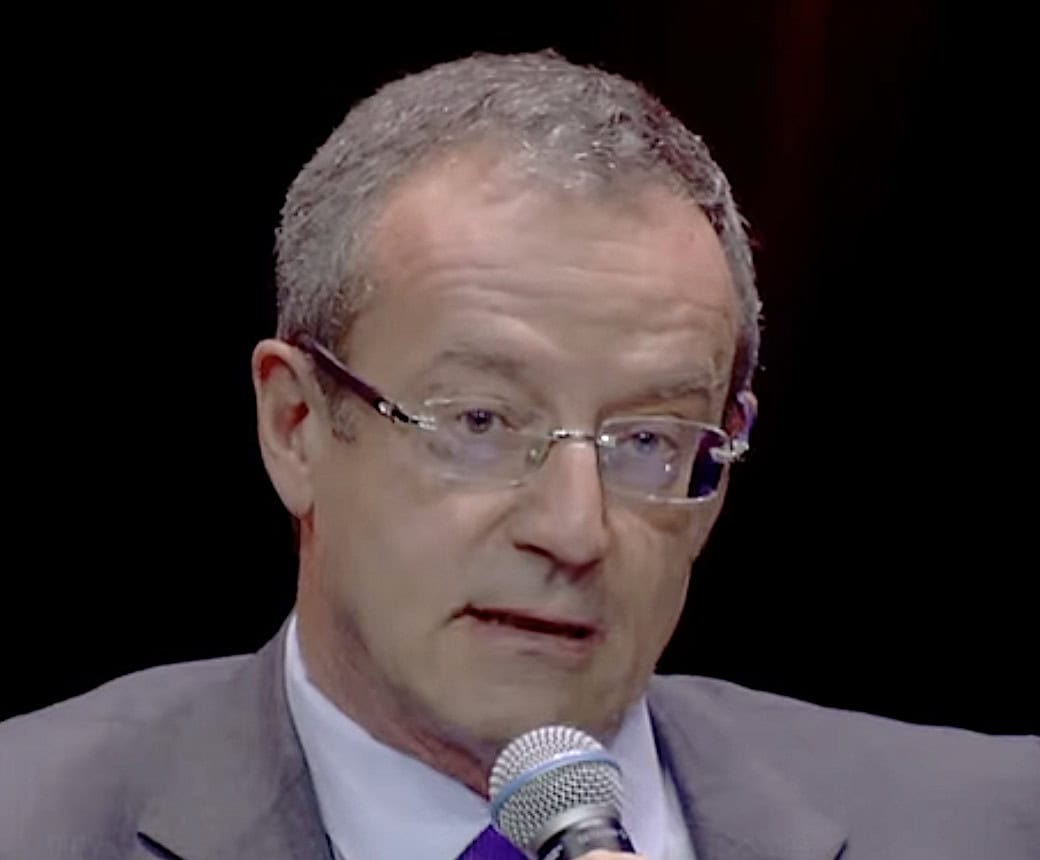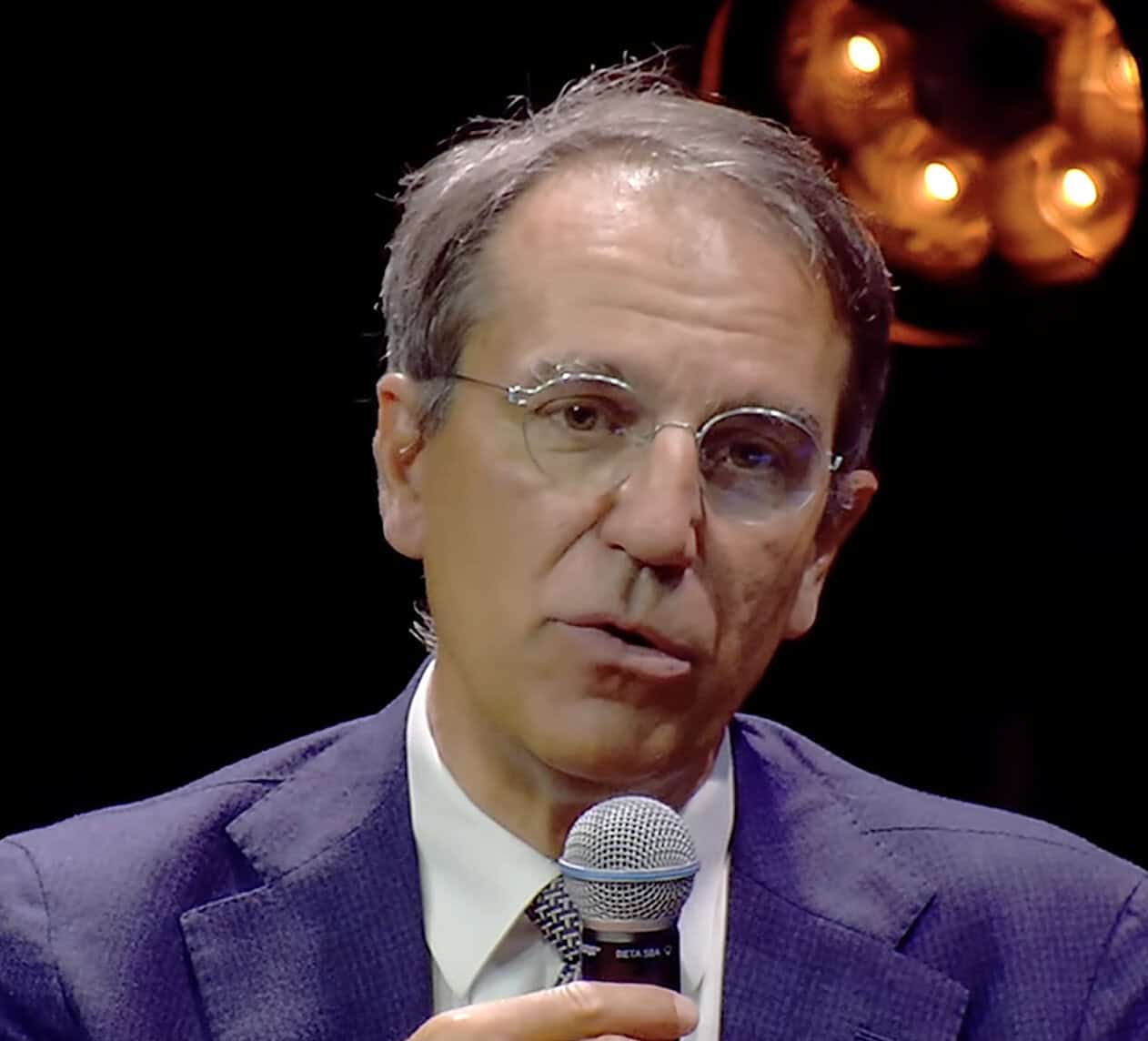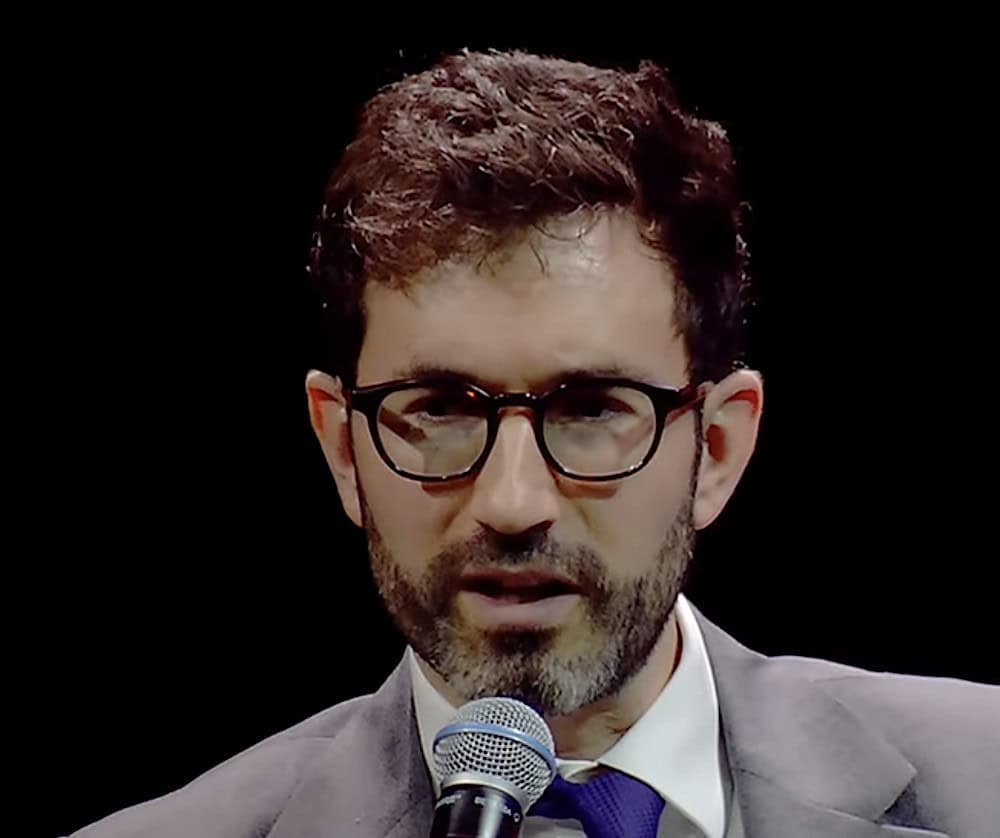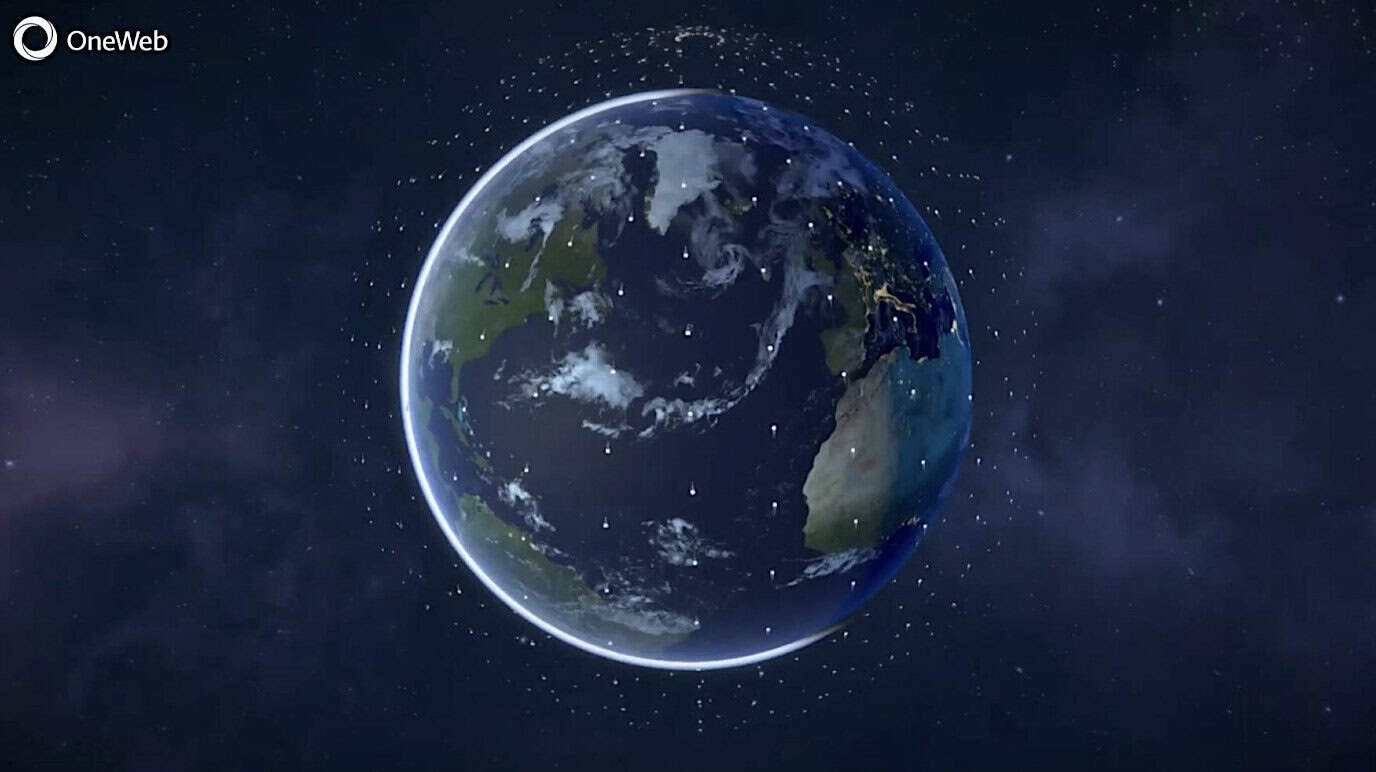Originally published by Space Intel Report on June 15, 2025. Read the original article here.
 Eutelsat Chief Executive Jean-François Fallacher. (Source: Paris Air Forum video)
Eutelsat Chief Executive Jean-François Fallacher. (Source: Paris Air Forum video)
PARIS — The Elon Musk of 2025 has become a golden opportunity for Europe’s space sector to counter the threat posed by Musk’s earlier incarnation as the creator of SpaceX and Starlink, European industry officials said.
These officials — satellite operators, satellite manufacturers and launch-service providers — can hardly believe their good fortune: Whatever gods may be that brought Musk to torture them for the past decade has now delivered a New Coke version.
“In the world now there are only two broadband [LEO] constellations in service: Starlink and OneWeb,” said Jean-François Fallacher, the new chief executive of satellite fleet operator Eutelsat Group, which owns OneWeb.
In June 13 remarks here at the Paris Air Forum, organized by La Tribune, Fallacher said:
“Our constellation is developed with European capital and we have cards to play here. We at Eutelsat propose a network in low orbit that is sovereign and European. There is a real appetite for this sovereignty aspect.
“What has happened in Ukraine and the recent statements of Musk, threatening a to stop work on a NASA contract, is an opportunity for us. Here we see what it means that an actor as key as that can threaten to stop service.
In a post on the Musk-owned X platform, Musk threatened to stop delivery of the SpaceX Dragon capsules that ferry astronauts and cargo to the International Space Station. He later reversed himself.
 Hervé Derrey. (Source: Paris Air Forum)
Hervé Derrey. (Source: Paris Air Forum)
Satellite manufacturer Thales Alenia Space, whose telecommunications division has taken a hit because of Starlink and the decline in the market for geostationary-orbit satellites, said current and prospective customers are delivering the same message.
“Customers around the world have all reached about the same conclusion: The big American partner, which we have long leaned on, we will remain a good partner, but putting all your eggs in the American basket is becoming dangerous,” Derrey said. “They need alternatives in multiple domains of satellite applications.”
 David Cavaillolès. (Source: Paris Air Forum)
David Cavaillolès. (Source: Paris Air Forum)
Europe’s Arianespace launch service provider was the first to contend with SpaceX’s growing market power. Its argument that the SpaceX Falcon 9 rocket was taking on the aspects of a monopoly in the commercial launch market fell on deaf ears as Falcon 9 ramped its production rate and kept prices low.
Arianespace Chief Executive David Cavaillolès said that sentiment looks to be changing now, especially since the new Ariane 6 heavy-lift vehicle is operational.
“Customers tell us that depending on a single actor is a strategic risk,” Cavaillolès said. “So this is an opportunity for us. Customers are now asking us to increase our cadence to a rate of more than 10 per year.
“Customers from the four corners of the world, including the United States, all say that depending on a single actor is an unacceptable strategic risk — especially when this actor has taken on a political coloration, as has been the case these past few months. This is a break for us and for Europe, this demand for diversification, not only from SpaceX but from American providers.”
 Eutelsat Group’s OneWeb satellite constellation: 634 individual satellites, of which 576 are active now and operated on 12 orbital planes, 48 satellites per plane, with five spares in each plane. Each plane is separated by 4 km in space (~2.5 mi) to prevent inter-plane collisions. (Source: Eutelsat Group)
Eutelsat Group’s OneWeb satellite constellation: 634 individual satellites, of which 576 are active now and operated on 12 orbital planes, 48 satellites per plane, with five spares in each plane. Each plane is separated by 4 km in space (~2.5 mi) to prevent inter-plane collisions. (Source: Eutelsat Group)
OneWeb has said from its beginning that it would position itself as the non-American equivalent to Starlink, giving customers an excuse to hedge their bets.
Eutelsat Group is 24% owned by Bharti Enterprises of India and 10.9% by UK government offices.
The company is currently scouting possible sources for funding OneWeb’s second-generation constellation — current or prospective shareholders, export-credit agencies, private-equity.
Eutelsat has ordered 100 Gen 1 version OneWeb satellites from Airbus Defence and Space and has said it will need an additional 340 satellites to maintain operations until the Iris2 secure connectivity constellation is ready at the end of the decade with a more sophisticated payload suite.
The new Gen 1 satellites, plus Eutelsat’s commitment to the Iris2 broadband constellation with the European Commission, carry a combined cost of 4.2 billion euros ($4.85 billion), according to Eutelsat estimates.
Fallacher, who arrived at Eutelsat from telco Orange in early June, bristled at the idea that the company was in dire financial straights.
“Let me correct a misimpression: Eutelsat does not have financial difficulties: No. Eutelsat has a need for financing. There’s a difference,” Fallacher said. “We need financing to develop the constellation and continue our growth, which has already started and has been significant, and to conserve this unique strategic capacity.”
Originally published by Space Intel Report on June 15, 2025. Read the original article here.
